- 2025,09,15
On the morning of July 25th, an expert symposium titled "School and City" was held at the Wenzhou City Daily Roadshow Center on the 4th floor of the Wenzhou Daily Newspaper Group Building.
On July 18th, the "Editor in Chief Interview" column of various platforms of Wenzhou City Daily published a special report titled "Li Xiaokun: A University Can Nourish a City". Jin Kesheng, Vice President of Wenzhou Daily Newspaper Group and Editor in Chief of Wenzhou City Daily, and Li Xiaokun, President of Wenzhou Medical University, jointly analyzed how Wenzhou, as a forefront of reform and opening up, can use the intelligence and academic ability of universities to regain confidence, open up a new journey, and create new brilliance.
Invited experts, leaders of universities and enterprises, and other guests discussed the integration of "school industry city" around the topic of "school city". Everyone unanimously believed that universities should become the engine for promoting economic and social transformation and upgrading.
Jin Kesheng said that the development of a city relies on the gathering and promotion of a group of "cultured people". If these people integrate in a certain direction according to market methods, and continue to concentrate their efforts, they will become advantageous industries. A university and a city interact with each other. A group of people can drive a city, and a university can nourish a city.
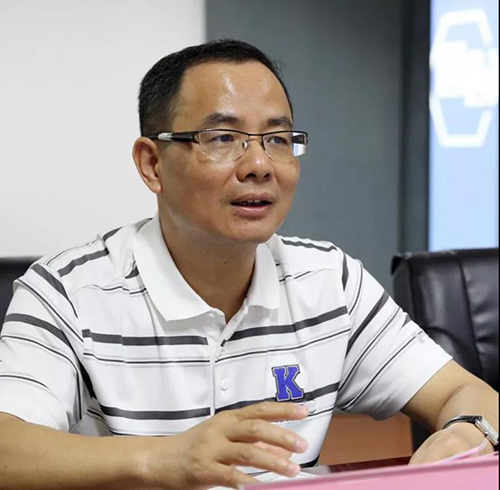
Zheng Xiaodong, Vice President of Wenzhou Ken University
Viewpoint: Universities are the engine of innovation and a melting pot for attracting talents
Universities are very important for a city, and there is no good city in the world without a good university. The role of universities in cities is enormous. Nowadays, universities are not only traditional teaching and learning, but also engines of innovation and a melting pot for attracting talents.
I think the relationship between the school and the city is actually two aspects. On the one hand, the development of universities and the support of cities are very important. The internationalization performance of Wenzhou people is strong, but the internationalization level of this city is still relatively lagging behind. How cities can better serve the development of universities is a very important aspect.
For example, the development of Wenzhou Kean University in attracting international talents requires support from various aspects, and relying solely on the school is difficult to promote development. For example, many facilities and services require specialized institutions for talent execution, which cannot be achieved by the university itself.
On the other hand, how universities can play a role in serving the city, I think this is also something that universities must consider. Firstly, I believe that universities should have their own positioning, just like Wenzhou Kean University. We focus on international education and develop some characteristic majors based on Wenzhou's own situation to serve the local development of Wenzhou.
We view the campus as an open entity, so from the beginning, there were no walls. The entire campus is like a community, serving not only the school's teachers and students, but also the surrounding communities and the entire city. Since the establishment of the school, we have maintained this concept, so the various facilities on campus first meet the needs of teaching and also meet the needs of various sectors of society for communication, training, or visits.
Furthermore, our school and the Ouhai District Government have jointly built Ken Town, which is centered around Wenzhou Ken University and aims to create the most internationalized characteristic town in Wenzhou, with international education and cultural tourism as the core industries. This characteristic town aims to better integrate the resources of Wenzhou Kean University into society. Of course, we also hope to promote the development of the university through the development of the surrounding areas.
In addition, becoming a platform for cultural exchange between China and the United States, promoting cultural, technological, and other exchanges between Wenzhou and various parts of the United States, is also a positioning of our school and one of the contents of our service to the local community.
Suggestion: The supporting role of the city for schools is very important. What Wenzhou needs to do is how to improve the comprehensive service level of the city, retain talents, and serve the development of the university. At the same time, universities should also have a sense of serving local development, combine their own positioning, develop characteristic majors, cultivate talents, and assist local development.
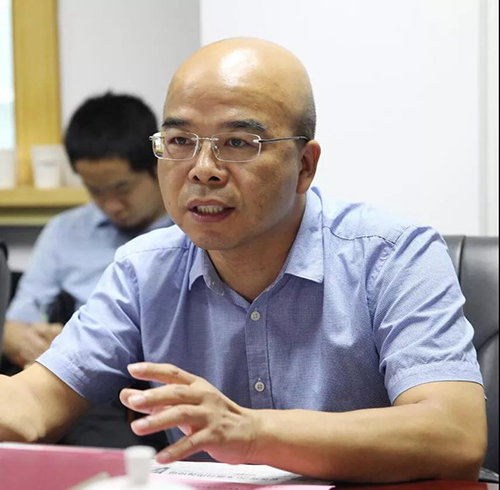
Wang Yan, Vice Dean of Zhejiang University of Industry and Trade
Viewpoint: Inheriting the spirit of craftsmanship and deepening the integration of industry and education
Adjust and optimize the professional structure based on the development of regional industries. Zhejiang Industry and Trade focuses on building four professional clusters, including advanced manufacturing, electronic information, product design, and modern economic and trade; Priority should be given to the development of such advantageous specialties as optoelectronic manufacturing and application technology, numerical control technology, software technology, electronic information engineering technology, footwear design and technology, industrial design, optometry technology, e-commerce, etc.
Collaborate with government, industry, academia, and research to lead the development of local industries. The college has a natural advantage of integrating school and enterprise education. Based on market contracts, it gathers multiple forces from government, industry, academia, and research cities to establish the Zhejiang Creative Park, Wenzhou Intellectual Property Service Park, National Advertising Pilot Park, National Intellectual Property Training Base for Small and Medium sized Enterprises, and Provincial Characteristic Industrial Design Demonstration Base as "three major parks and two major bases". Relying on the park and collaborating with relevant units, Wenzhou Intellectual Property College, Wenzhou Cultural and Creative College, Wenzhou Modern Logistics College, Wenzhou Tennis College, Environmental Protection College and other characteristic secondary colleges have been established successively. It not only provides platform support for cultivating high-quality technical and skilled talents, but also leads the development of related industries such as creative design and intellectual property in Wenzhou.
Focus on applied research and strengthen the function of university scientific research services for small and medium-sized enterprises. In the past five years, the college has strengthened the construction of public science and technology innovation service platform, further improved the college's characteristic science and technology intermediary service system integrating "information collection and distribution, technology evaluation, market prediction, decision support, technology research and development, user service, and venture capital", and mainly built 19 scientific research institutions and carriers.
Building entrepreneurial universities and promoting the ecological interaction and integrated development of "innovation and entrepreneurship education" between universities and society. We have established a "hierarchical classification, integration of industry and education" innovation and entrepreneurship education system; Establish an innovation and entrepreneurship project assistance and social service system to serve social innovation and entrepreneurship; Establish the "Taiwan Youth Entrepreneurship and Employment Service Center"; Provide important support for Wenzhou to become a national social force sports pilot city. The college has trained 14 world champions in ball throwing events; The metallurgical club under the school has an average annual training and training of nearly 10000 people.
Suggestion: It is recommended that the government introduce stronger and more practical policies for the integration of industry and education.
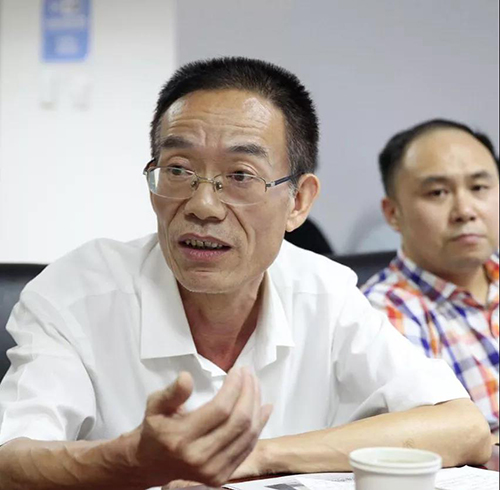
Xu Likui, Member of the Party Committee of Wenzhou Vocational College of Science and Technology
Viewpoint: Do a good job in school city linkage, service innovation, and drive development
Wenzhou Vocational College of Science and Technology was established on the basis of the Municipal Academy of Agricultural Sciences in 2006 and officially established in 2008. The school adheres to the linkage between schools and cities, implements innovation driven development, promotes the integration of industry and city, promotes local innovative development and transformation development, and has achieved significant results in the linkage between schools and cities and service innovation driven development.
The inherent advantages of integrating agriculture, science, education, and research in schools are obvious. The school has the functions of agricultural education, agricultural research, and agricultural promotion. The school focuses on the integration of industry and education, deepens cooperation between schools and enterprises, and improves the level of cooperation between industry, academia, and research; Adhere to the guidance of applied research, strengthen the research and development of horizontal research topics, and promote services such as achievement transformation and technology application; We will conduct in-depth technical consultation, technology training, and training for new farmers.
Specifically, schools first set up majors around industries. Targeting key development industries, improving professional adjustment mechanisms, and optimizing professional development structures. In terms of talent cultivation, we will strengthen deep cooperation between schools, enterprises, and regions in running schools, promote the construction of an integrated mechanism for enrollment, training, and employment, establish an education platform that combines industry, academia, and research, and achieve cooperative education, education, and development.
Secondly, the school has enhanced its industrial service capabilities. It is like promoting the transformation and upgrading of traditional research institutes and striving to transform into applied research institutes. Adhere to the integration of industry and local development, and build a number of new research institutes. In addition, based on solving practical problems and scientific research output, further refine the research direction, strengthen the support, guidance, and service of scientific research to the industry. Finally, support the transfer of scientific and technological achievements, strengthen the management of proprietary knowledge and achievements property rights, and accelerate the transformation of school intellectual property rights into advanced productive forces.
At present, the school is still coordinating with the rural revitalization strategy. Continue to deepen the cooperation between schools and regions, and jointly establish the Wencheng County Modern Agriculture and Health Industry Research Institute through cooperation with the Wencheng County Government. Guide 100 expert doctors to leverage their expertise and connect with the construction of the Western Ecological Leisure Industry Belt. The school also provides policy consulting services, including planning, technology, training, and consulting services for farmers, family farms, cooperatives, agricultural enterprises, and relevant government departments.
Suggestion: We hope that the Municipal Party Committee and Government can provide a task list to schools to address the issue of school city integration, and provide policy support to universities in terms of mechanisms, platforms, resources, and talents in promoting school city integration.
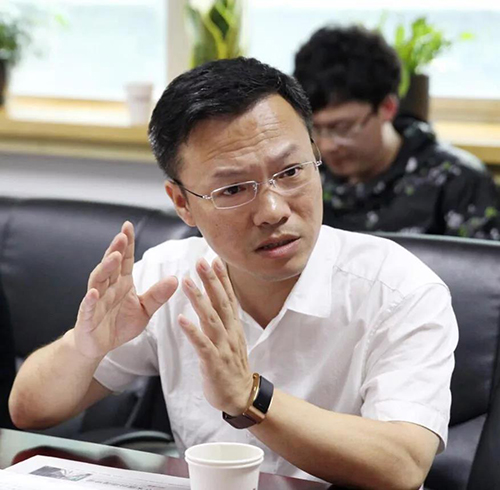
Director of Wenzhou University's Industry Education Integration Center, Full Effort
Viewpoint: Three directions of "integration of industry and education" to comprehensively assist regional economic development and upgrading
Wenzhou University has a clear positioning to build a "first-class applied university" as its development goal, and continuously promote connotative development in serving and integrating local reforms and innovations. The three major strategies for building a first-class applied university are: integration of industry and education, innovation and entrepreneurship, and international education.
The integration of industry and education solves the talent problem and is the fundamental and foundation for achieving coordinated and sustainable development of industries and innovation driven development. In recent years, Wenzhou University has actively aligned with national strategies, combined with regional industrial and cultural characteristics, continuously explored and innovated in the integration system and mechanism of industry and education, highlighted the three major directions, and comprehensively assisted in the transformation and upgrading of the regional economy.
1、 Guided by industrial demand, consolidate the professional discipline system of industry education integration. Establish a system for cultivating applied talents through classification and stratification. Create a comprehensive professional cluster through diversified collaboration. Zero distance docking to create an industry education integration training platform. The industry education integration building under construction will be put into use in 2018 and will be built into a national level industry education integration demonstration center.
2、 Guided by urban development, we will strengthen the mechanism of integrated development between industry and education. Actively connect with local development needs and strengthen cooperation with government departments. Connect with the industrial layout of cities and counties, strengthen regional cooperation, and jointly build the Cangnan Research Institute of Wenzhou University with Cangnan, the Pingyang Intelligent Manufacturing Research Institute of Wenzhou University with Pingyang, the Cultural and Tourism Industry College and Research Institute with Wencheng, the Life and Health Industry Park with Leqing, the industrial cluster led by strategic emerging industries with Zhejiang South Science and Technology City, and the New Materials and New Energy Industry Research Institute with Ouhai, Promote industrial development through the integration of industry and education.
3、 Guided by international cooperation, we aim to create an international strategic platform for the integration of industry and education. In connection with the national "the Belt and Road" education action plan, we have established exchanges and cooperation with 75 colleges and universities in 18 countries and regions. Through joint construction of research bases and joint training of doctoral students with universities or research institutes in developed countries, scientific research cooperation with countries along the "the Belt and Road" in applied fields is carried out. Introduce overseas research talents. We will implement the "Wen Da Thousand Talents Plan for Studying Abroad", expand the enrollment of international students, and recruit nearly 400 international students from countries along the "the Belt and Road" every year.
Suggestion: Fully promote the construction of Wenzhou as a national demonstration city for the integration of industry and education, organize research on the integration of industry and education, form a work pattern of government, enterprise, university, industry, and society coordinated participation, and develop a model that conforms to regional industrial characteristics and school enterprise cooperation to cultivate talents and collaborative innovation.
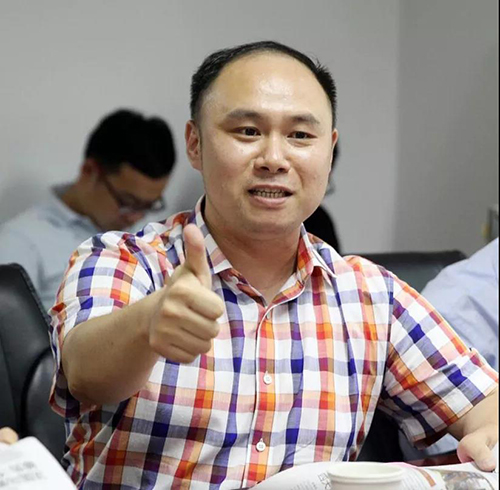
Xiao Jian, Vice Dean of the School of Pharmacy at Wenzhou Medical University
Viewpoint: Without Wenzhou, there would be no rapidly developing Wenzhou Medical University
Schools and cities are inseparable. What would happen if there were no universities in the city? Without Zhejiang University in Hangzhou, West Lake would lose its vitality; If Hefei lacks the University of Science and Technology of China, then the name of a high-tech city will also disappear. In Wenzhou, without Wenyi University, people may not be able to enjoy the current quality of medical services. This, I think, is the greatest contribution that Wenzhou Medical University has made to the city of Wenzhou.
Ophthalmology is also a beautiful business card that Wenzhou Medical University has brought to Wenzhou. Our College of Ophthalmology has State Key Laboratory, National Engineering Research Center, and National Key Clinical Specialty. There is such a national platform and national medical team in Wenzhou, which is also a way to win honor for Wenzhou.
Our education for international students has attracted a group of foreign elites who have lived and studied in Wenzhou for many years and then returned to their home country to work in healthcare. Our student Charles, who we trained, has grown into Ghana's Deputy Ambassador to China, serving as a bridge of friendship between China and foreign countries. Now, Wenzhou Medical University continues to implement an internationalization strategy, bringing more overseas talents to Wenzhou and making more overseas friends understand Wenzhou.
The School of Pharmacy of Wenzhou Medical University and relevant colleges of Wenzhou University have jointly established the Wenzhou Biomedical Collaborative Innovation Center. Through the implementation of "integration of industry and education", they have fully integrated the advantageous disciplinary resources of the two schools, and have successfully been approved as the Zhejiang Biomedical Collaborative Innovation Center and the Zhejiang Engineering Laboratory for Growth Factor Drug Development. The research team led by President Li Xiaokun of Wenzhou Medical University is also creating another business card for the medical field in Wenzhou - the "Growth Factor Industry Education Integration Platform", which has become the world's largest growth factor new drug research and development base.
Without the city of Wenzhou, there would be no rapidly developing Wenzhou Medical University. It is precisely Wenzhou's full support for the school that has built a new hospital area and other facilities, making Wenzhou Medical University the largest single hospital in Asia; It is precisely a series of talent support policies in Wenzhou that have made more domestic and foreign talents willing to settle in Wenzhou and take root, contributing wisdom to Wenzhou Medical University and Wenzhou. We should also build on the existing foundation by learning and absorbing some practices of the linkage between other cities' schools and cities, and further promote Wenzhou Medical University to become a leading city in the construction of regional medical and health centers. We should strive to do a good job in driving medical treatment, supporting talent introduction, leading medical research, linking industrial development, and linking with city level and county (city, district) hospitals, Provide important support and guarantee for the new development of Wenzhou's medical and health care industry in the new era.
Suggestion: Integration of industry and education, deep integration, targeting industrial peaks, matching local needs, maximizing the advantages of university talent teams, and assisting in industrial upgrading and development.
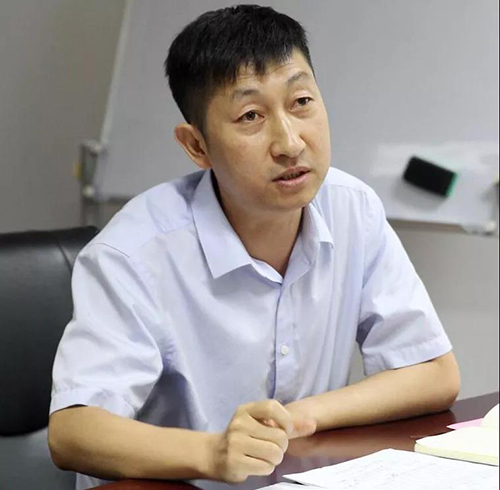
Yang Fuming, Dean of the School of Finance at Wenzhou Business School
Viewpoint: Building a diversified industry practice platform to achieve win-win outcomes for both schools and enterprises
The relationship between universities and local areas is interactive development, which combines the development of universities themselves with local development and considers universities as a subsystem of the regional socio-economic development system.
Local universities and urban development are a subsystem of regional socio-economic development, and there is a parallel relationship between them. We should treat the development of universities and cities on an equal footing, because technology is the primary productive force and talent is the primary resource. The essence of technological competition is the competition for talent. The more the integration of local university subsystems and urban development subsystems, the greater their mutual influence and interdependence. Therefore, universities should connect with local industries, enterprises, and departments, that is, through the integration of industry and education, while serving the local economy and society, in turn promoting their own development.
Building a diversified industry practice platform based on the social demand for applied business talents and the professional practice needs of college students, effectively addressing the practical needs of college students' professional practice and internship; For enterprises, accepting student internships can help them understand students in their work and discover potential talent resources. As long as communication and organization are good, both schools and enterprises can achieve a "win-win" situation. Taking the finance major of Wenzhou Business School as an example, as early as 2003, a banking class was established in cooperation with the Wenzhou Chengdong Branch of Agricultural Bank of China. After 16 years of development, our school's financial specialty class has been widely recognized by students and units in the Wenzhou financial industry, and now many financial institutions are seeking cooperation with us. Recently, a bank has extended its internet finance retail business to schools by recruiting students to form a project team and conducting business under the guidance of bank mentors. This is also a new attempt in the integration of industry and education in our school.
In addition, the employment direct class that trains urgently needed applied talents in the regional financial industry is also a characteristic of our school. Talent cultivation is one of the basic functions of universities, and the cultivation of applied talents is the fundamental goal of the integration of industry and education in local universities. Create an industry think tank based on serving local decision-making consultation. Scientific research is one of the basic functions of universities. Deepening the integration of industry and education requires scientific research to provide support, and serving industry and industry needs is also the basic purpose of industry and education integration. Business schools have always regarded industry research as one of the important contents in exploring the integration of industry and education.
Suggestion: The government should fully recognize the importance of higher education for local economic development and consider it as an industry, with strong investment, including not only financial investment but also policy and institutional investment.
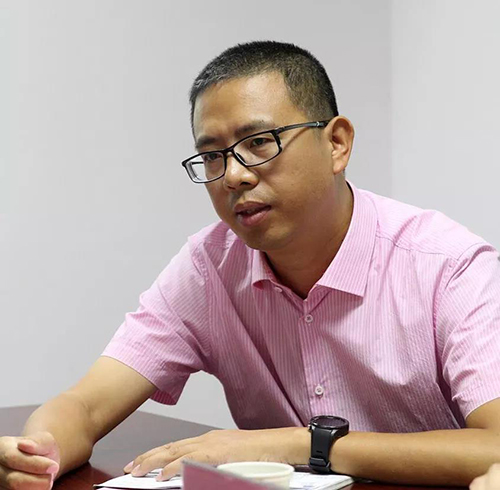
Zhao Chunjian, Vice Chairman and Vice General Manager of Zhejiang Chengyi Pharmaceutical Co., Ltd
Viewpoint: Building a benign development pattern of "local support for universities, and universities nurturing the local"
Higher education should not only teach students textbook knowledge, but more importantly, teach them learning methods, the ability to acquire knowledge, understand the principles of life, and cultivate good habits, in order to better adapt to social needs and cultivate more and better practical professional talents for urban development.
Why is Stanford University in the United States world-famous because it created Silicon Valley. How can Wenzhou's universities and university towns create Wenzhou's "Silicon Valley"? This is a question worth pondering.
Local development requires the services of universities, especially the support of talents, and the development of universities also relies on strong support from the local government. Wenzhou should establish a healthy development pattern of "local support for universities, and universities nurturing the local".
The construction goal of universities should be to become a highland for education, innovation, and service, providing strong talent and intellectual support for Wenzhou's economic and social development.
The key to the competition between cities now lies in the competition for talent. Where do talents come from? From a university. This requires universities to continuously explore and build an open, collaborative and innovative talent training system, forming a talent linkage training pattern guided by the government, participated by university entities, enterprises (society), and supported by scientific research. In addition, it is necessary to strengthen the cultivation and introduction of high-level and skilled talents, effectively formulate and make good use of various talent policies, and attract and retain more talents to innovate and start businesses in Wenzhou. For example, when introducing high-end talents, we should pay more attention to "flexibility", not seeking everything but the use, not the process, but the result; We need to further increase support for the development of college graduates staying in Wenzhou; Our vocational education needs to cultivate more blue collar skilled workers who can better adapt to the development of Wenzhou's industry.
How can talents in Wenzhou be retained, and what do we rely on to retain them? This requires the maintenance of our industrial foundation, support from government policies, and support from the urban development environment, which is a comprehensive system engineering.
In addition, universities should accurately align with the development needs of local industries, strengthen the co construction and sharing of innovation platforms, and accelerate the transformation of scientific research achievements. For example, we sincerely hope that the pharmaceutical industry will establish the first academician expert workstation in Dongtou with Academician Ding Jian this year, and jointly establish the "New Drug Research Institute" with Wen Medical University. This will greatly improve our company's research and development capabilities, accelerate the cultivation of some new varieties, and further enhance the core competitiveness of our listed companies' brands and products.
Next, we sincerely hope that the pharmaceutical industry will continue to closely cooperate with research institutes and universities in all aspects, relying on the technical capabilities of research institutions and the effective integration of enterprise industrialization technology, to quickly convert good projects into actual production and achieve the integrated development of the "learning industry city".
Suggestion: Universities should closely focus on the development of local industries, strive for a place, and reflect their greater value in serving urban development. Further strengthen the deep cooperation between government, bank, enterprise, industry, academia, and research, accelerate the transformation of achievements, unleash more productivity and creativity from knowledge, and achieve win-win development between universities, enterprises, and cities. Colleges and universities should expand and strengthen their characteristics, highlight professionalism, and strive to achieve excellence in their majors, leading the country and the world, in order to better support urban development.
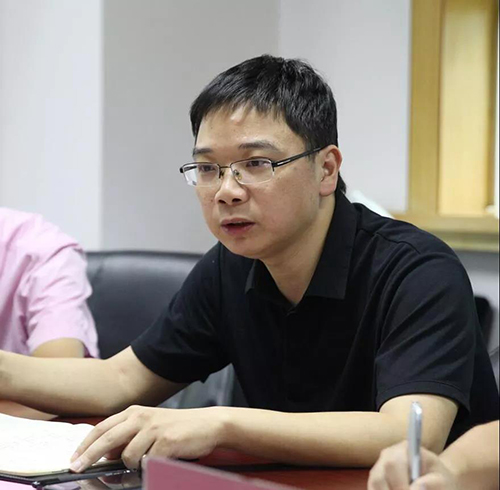
Chen Xian, Director of Wenzhou Higher Education Park Management Office
Viewpoint: Provide good services and practice the "integration of three aspects and sharing of three benefits"
The first function of a higher education park is to serve universities, the second function is the planning, construction, and urban design of the entire area, the third function is industrial introduction, investment attraction, and the fourth function is the construction and management of the park, urban management, and social management.
The municipal party committee requires us to play the "five cards" well in Ouhai District. The first card among them is the "Science and Education Card". The higher education park is the most concentrated area of higher education, talent, and technological resources in the city. The city leaders also proposed the concept of "three ones": first, "one city" to create a "new city of science and education industry". The second is "one game of chess", focusing on the idea of building "one core, one axis, and five towns" in the "High Education New Area", and doing a good job in the overall planning of the area, planning and then moving forward. The third is the "one dragon", which can be reflected in eight words: politics, industry, education, research, utilization, capital, promotion, trade, linkage between academia and city, integration of industry and city, and integration of industry, discipline, and teaching among universities, enterprises, and local governments. Simply put, this concept is to build a "1+7+X" school local strategic cooperation system centered on "school local cooperation, industry city integration".
The second card is the "Higher Education Card". How to achieve the implementation of the "Three Ones" concept, we need to "integrate multiple plans and draw a blueprint", form a "1+7+X" school land cooperation system, and build a "science and education industry new city". For our higher education park, we need to implement, firmly grasp, and solidly grasp the "three core elements" and "three key points": "disciplines", "platforms", and "parks" are the foothold of our work. Recently, there was a report analyzing the future industrial development of cities in Beijing, Shanghai, Guangzhou, and Shenzhen, including Hangzhou and Changsha. Through big data analysis, the conclusion was drawn: which city has more entrepreneurship and technology platforms, which city has more high-tech and listed enterprises, and which city has better development potential and prospects.
Now, the work purpose of higher education parks is to practice the integration of "three aspects" and the sharing of "three benefits", promote the integration of industry and city, and the linkage of learning and city, and create a "dynamic new area and new city of higher education".
Suggestion: The government should build or guide enterprises to build containers for "future urban industries", "high-tech industries", and "technology industries". It can be concluded that without science and technology innovation platforms, there would be no "emerging industries" and no "future urban industries".
Source of manuscript: Wenzhou Urban Daily
